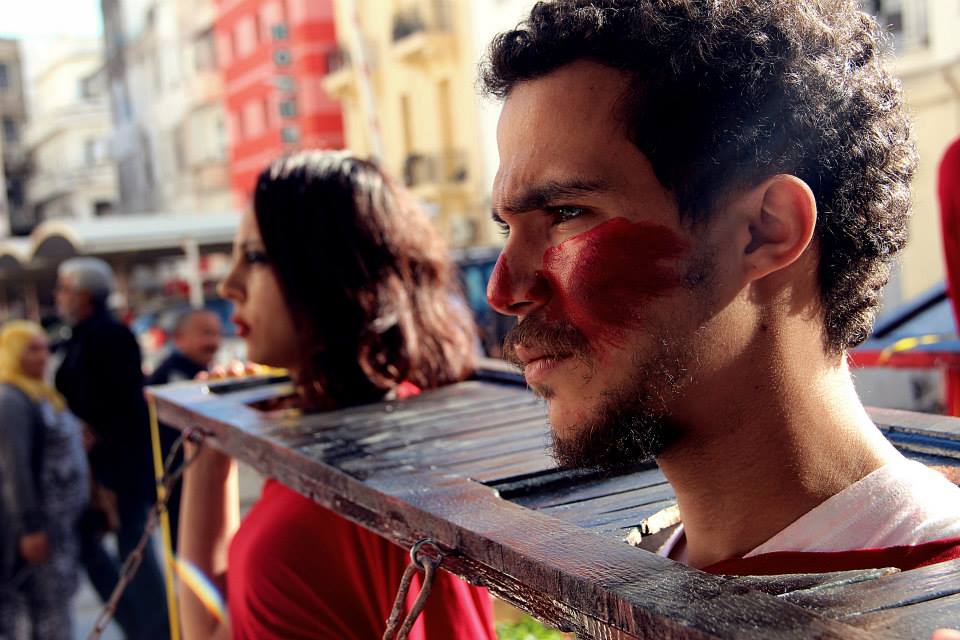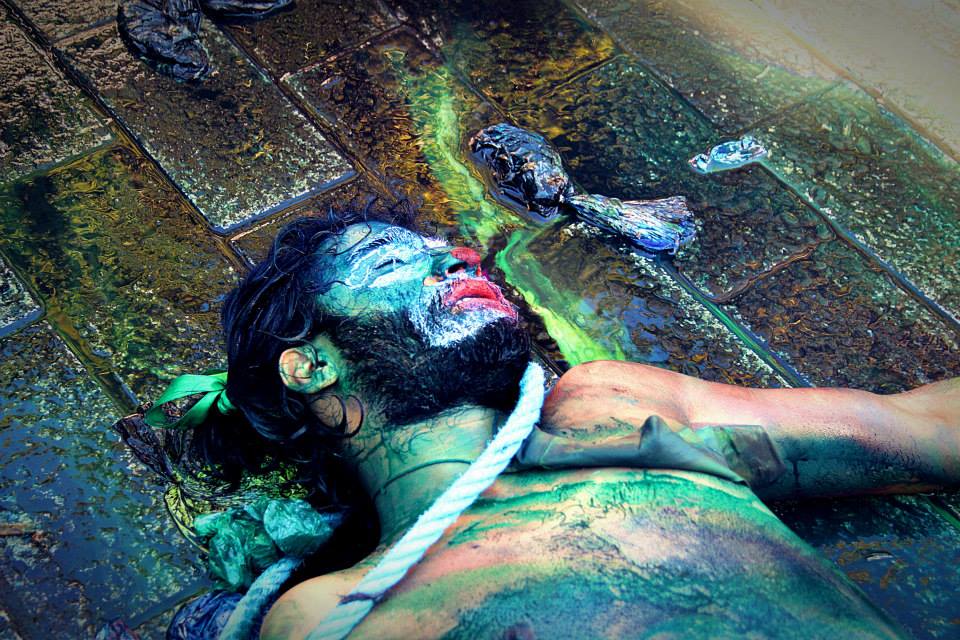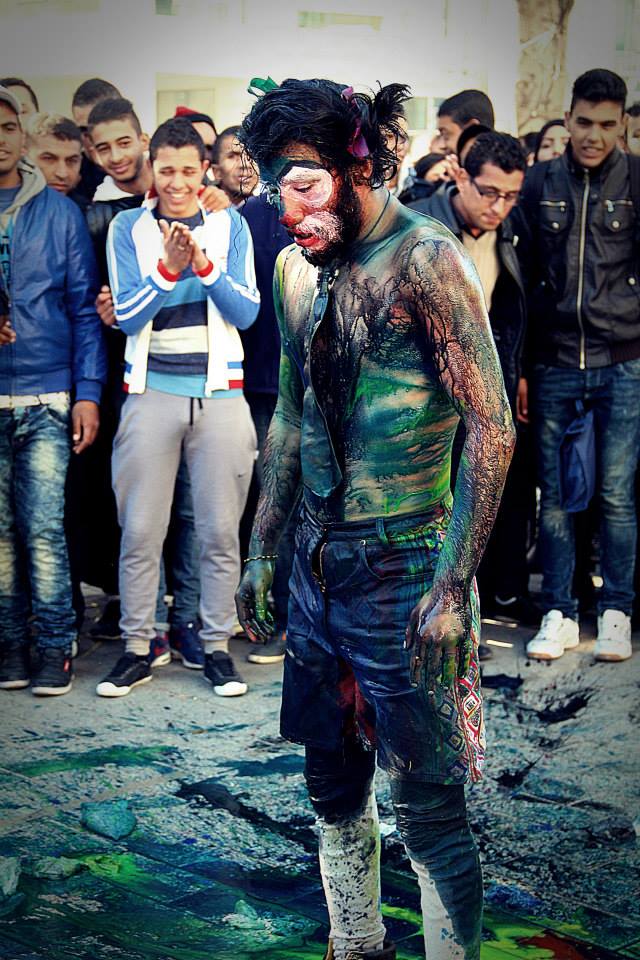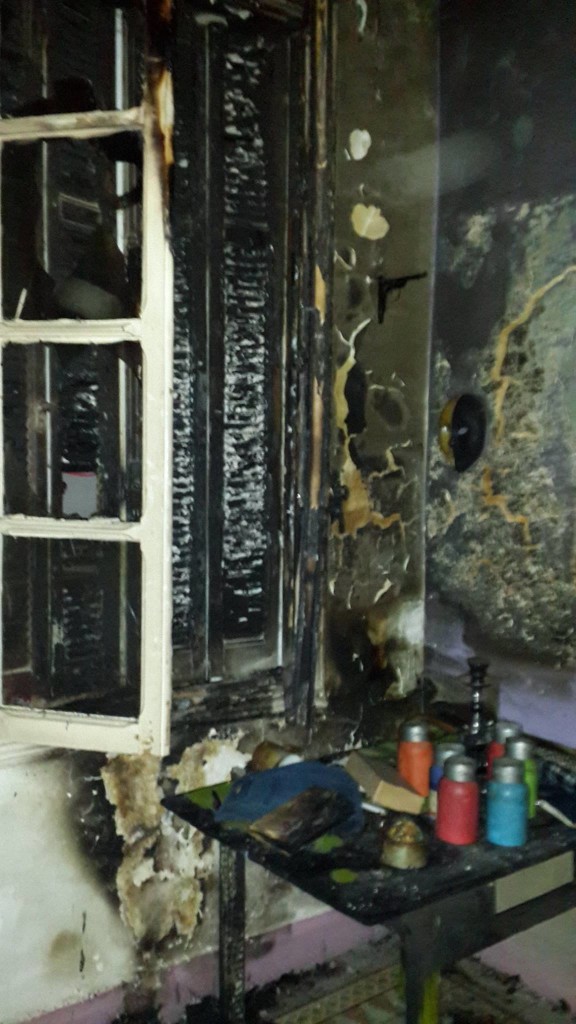“We wanted to come up with new forms of protests, new forms of expressions and entertainment even, and performs them in alternative places such as the central market or simply the streets,” said Seifeddine Jlassi, the leader of Fanni Raghman Anni (Tunisian Arabic, translated to English as “My Art In Spite of Myself” or “Artist Against My Will”) in a recent interview. The group rose to prominence with their public protests in the wake of Tunisia’s revolution, before which performance art of any kind was rare outside of the formal setting of a theater.

Members of Fanni Raghman Anni engage in a public performance against Tunisia’s death penalty (Fanni Raghman Anni.)
In their work, the group has brought both art and political activism to an audience which would usually not be exposed to them, the general public. As such, the group uses their originality to tackle the issues most fundamental to Tunisia’s society.
One such issue, which brought Fanni Raghman Anni much recent attention, has been death, confronted by the group both in the form of the country’s death penalty and in the high rate of youth suicide.

A January 15 performance of “Three Points,” denouncing the prevalence of human rights violations and youth suicides in Tunisia (Fanni Raghman Anni.)
Though the group’s audience is the general public, it targets the government as well as the average citizen. In a January 15 performance, entitled “Three Points,” the group asked bystanders to follow three precepts in their lives – “don’t commit suicide, don’t die out of agony, and live your life” – followed by a fifteen minute performance detailing acts of torture and denouncing the government’s engaging in them.
The performance, which saw Fanni Raghman Anni partner with Danseurs-Citoyens (French for “Citizen Dancers”) brought attention to the universal human right to live. “The right to life is sacred, and no one has a right to violate it,” said Badr Baabou, a member of the Association of Justice and Equality and close partner of the performance group. In this assertion he made no exception for the government. “Even if crimes are related to terrorism, this cannot justify the death penalty punishment. How could I punish someone with the same wrong that he committed?”

The conclusion of the “Three Points” performance, in which the audience was instructed to participate by pelting the performers with bags of colored liquid (Fanni Raghman Anni.)
The group’s performances have not, however, come without resistance. Last July, nineteen artists belonging to the group were arrested for their role in an April, 2014 performance entitled “They Killed Him,” referring to the 2013 assassination of democratic opposition leader Chokri Belaïd. During that same performance the artists were verbally and physically assaulted by radical Islamist leaders. The charges against the nineteen artists were dropped following an international advocacy campaign.
Furthermore, the day before January’s performance of “Three Points,” the group’s headquarters were torched by a yet-unknown group.
A computer, a camera, and numerous documents belonging to the group were lost during the raid, but the next day’s performance was held as planned. An official statement by Jlassi made the reason for the group’s resilience in holding the performance clear. “We are an idea,” he said. “So what if the papers and archives were burnt? It is a war of ideas.”

Despite the attacks, the group remained standing, holding the performance against suicide and the death penalty as planned (Fanni Raghman Anni.)
The power of the group’s art to combat violence and death, even when confronted with attacks themselves, was made clear in their resolve to carry on the public protest. The group’s performances bring the issues usually hidden behind closed doors to the public eye. The crowd on Avenue Habib Bourguiba took notice to the group’s message, and to the issues otherwise hidden to the public eye.

